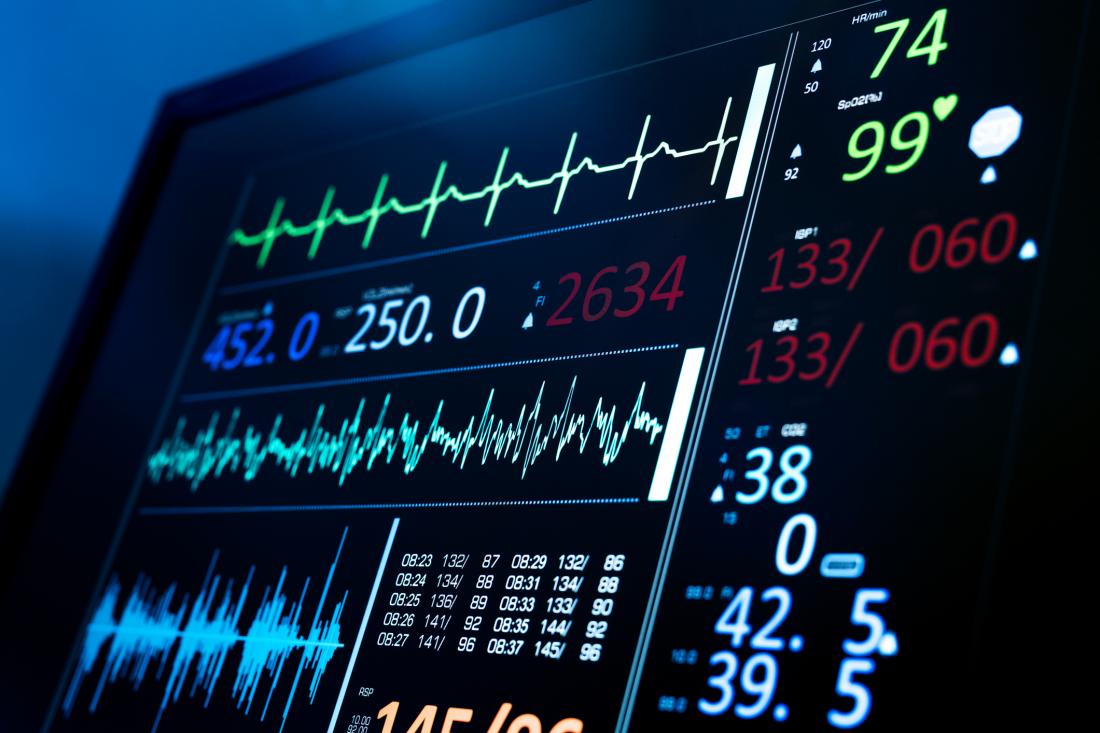Scientists have trained an artificial intelligence tool to predict sex and estimate age from electrocardiogram readouts. They suggest that, with further development, the tool could soon be helping doctors to assess the overall health of their patients.

One day, an AI-enhanced ECG could estimate a person’s overall health.
An electrocardiogram, also known as an ECG or EKG, is a painless, simple test that records the electrical activity of a person’s heart.
A recent paper in the journal Circulation: Arrhythmia and Electrophysiology, describes how the team developed an artificial intelligence (AI) tool to predict sex and estimate age from ECG data.
The researchers, from the Mayo Clinic College of Medicine and Science, in Rochester, MN, trained the AI tool, which is of a type known as a convolutional neural network (CNN), using ECG readouts from nearly 500,000 individuals.
When they tested the CNN’s accuracy on a further 275,000 people, they found that it was very good at predicting sex but less good at predicting age. The AI tool got the sex right 90% of the time but only got the age right 72% of the time.
The team then focused on 100 people in the test batch for whom they had at least 20 years of ECG readouts.
This closer investigation revealed that the accuracy of the AI tool’s age estimates depended on whether the individuals had experienced heart conditions.
AI has potential to glean ‘physiologic age’
For individuals who had experienced heart conditions, the AI tool’s age estimates tended to be greater than their chronological ages.
For those who had experienced few or no heart conditions, the AI tool’s age estimates were much closer to the participants’ chronological ages.Could artificial intelligence be the future of cancer diagnosis?A convolutional neural network has learned to differentiate between malignant and benign growths in scans of breast tissue.READ NOW
The results showed that for people who had experienced low ejection fraction, high blood pressure, and heart disease, the AI tool estimated their ages to be at least 7 years greater than their chronological ages.
Ejection fraction is a measure of how well the heart is pumping.
The researchers say that these results suggest that the tool appears to be estimating biological, or physiologic, age, which, in contrast to chronological age, reflects a person’s overall health status and body function.
“This evidence,” says senior study author Dr. Suraj Kapa, assistant professor of medicine at the Mayo Clinic, “that we might be gleaning some sort of ‘physiologic age’ was certainly both surprising and exciting for [AI’s] potential role in future outcomes research and may foster a new area of science where we seek to better understand the biologic underpinnings of such a finding.”
Physiologic age marker to aid overall health assessment
Even people with no medical training can see that different people appear to age differently.
Scientists investigating aging research are increasingly turning to physiologic age as a way to measure progress of biological aging processes, as opposed to the simple passage of time.
To this end, they have proposed a number of biomarkers, including those that measure substances in the blood, epigenetic alterations to DNA, and the level of frailty.
Dr. Kapa and colleagues suggest that the ability to detect discrepancies between chronological age and the age suggested by the heart’s electrical signals could serve as a useful biomarker for hidden heart disease and other conditions.
“Being able to more accurately assess overall health status may help doctors determine which patients they should examine further to determine if there are asymptomatic or currently silent diseases that could benefit from early diagnosis and intervention,” Dr. Kapa explains.
The researchers call for more research to validate the use of the AI-enhanced ECG as a way to estimate physiologic age in healthy people.
The data that they used came from people who had undergone ECGs for clinical reasons.
“While physicians already consider whether a patient ‘appears [their] stated age’ as part of their baseline physical examination, the ability to more objectively and consistently assess this may impact healthcare on multiple levels.”
Dr. Suraj Kapa

This is a demo advert, you can use simple text, HTML image or any Ad Service JavaScript code. If you're inserting HTML or JS code make sure editor is switched to "Text" mode.